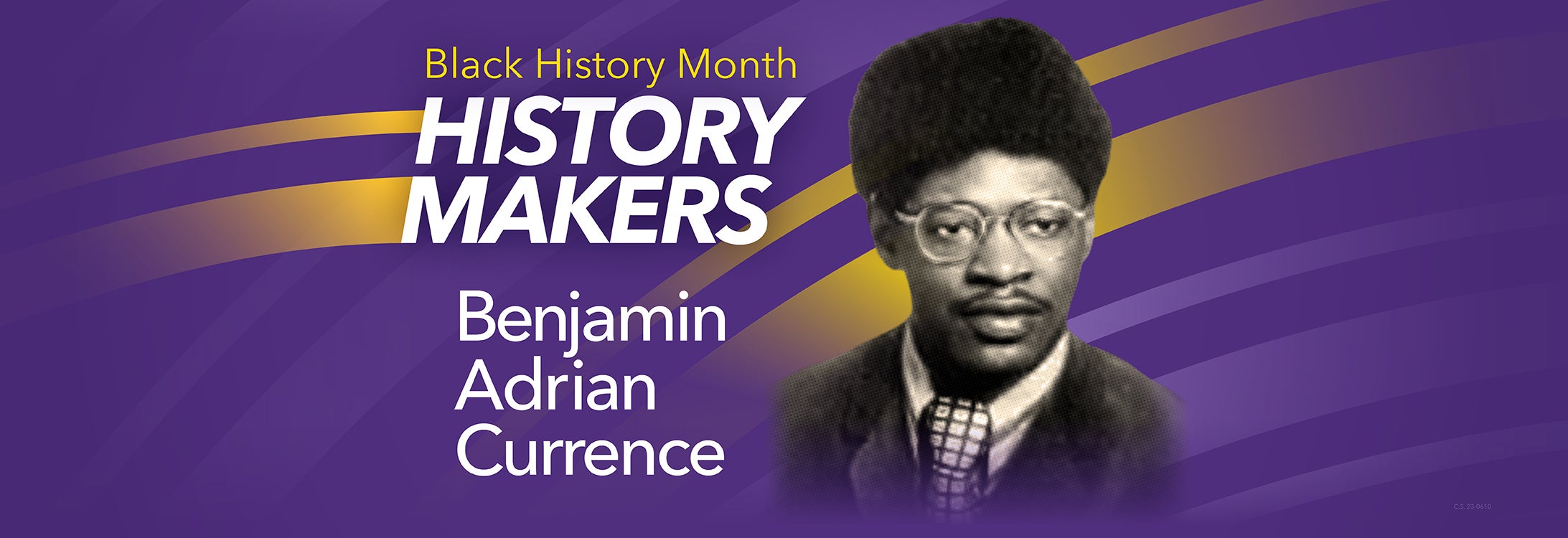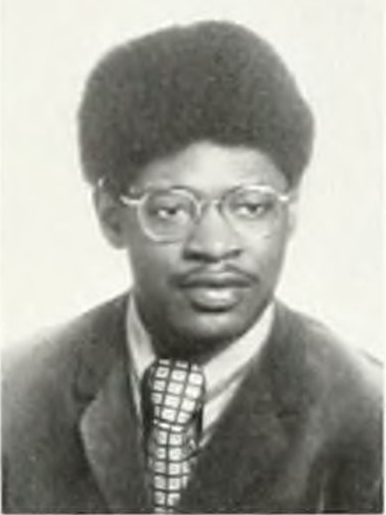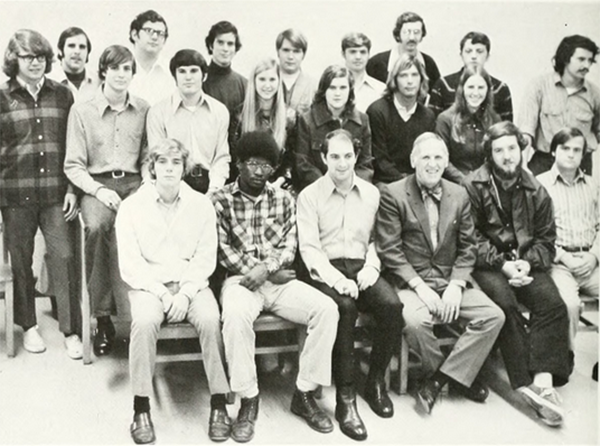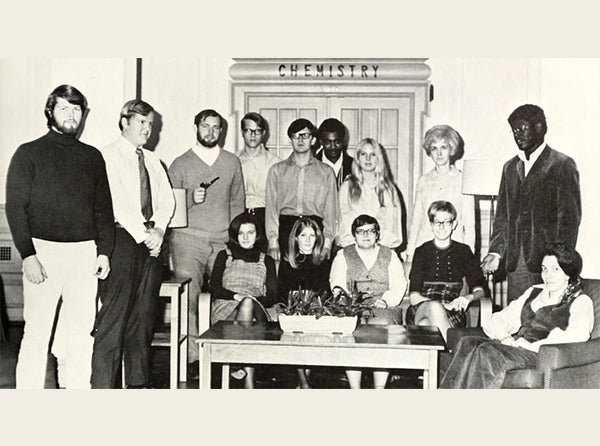HISTORY MAKER: BENJAMIN ADRIAN CURRENCE
‘Up against the wall,’ Currence fights for equality in the ’60s, ’70s
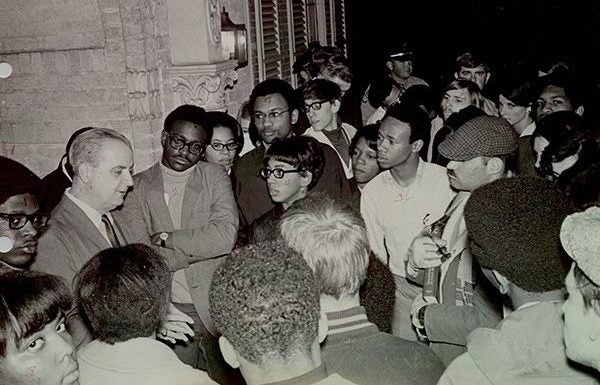
Benjamin A. Currence, far top left, was among a large group of students who marched to the East Fifth Street home of Dr. Leo Jenkins, then president of East Carolina, to demand change. The numbers later added to the photograph identify several of the students, including (1) Currence, (2) Johnny Williams, (3) Luther Moore, (4) Audrey Daniels, (5) Ronald Silver, (6) Jerry Lee, (7) Rosevelt Morton and (8) Annie McIntyre. (File photos)
The doorbell sounded as more than 150 pairs of feet shuffled on the porch, lawn and nearby pavement.
It was a Wednesday, and the chill of an early spring night and tension of unanswered questions and requests filled the air near on East Fifth Street.
Some 23 days earlier, 67 signatures followed a three-page letter presented to then East Carolina University president Dr. Leo Jenkins and printed in the March 3, 1969, edition of The East Carolinian.
“We, the Black Students of East Carolina University,” the letter began, before leading into 10 demands for a better racial atmosphere on campus, along with changes and improvements to existing policies the students said were unfair, obsolete and shortsighted.
One pair of feet on the porch of the Dail House, where Jenkins lived, that March 26, 1969, night — belonged to a young man who was 17th to sign his name, neatly in cursive, at the end of the letter: Benjamin A. Currence.
Currence, a Roland, North Carolina, native, was a chemistry student at ECU. He served as vice president of the American Chemical Society, program director of the Law Society and vice president of the Society of United Liberal Students (SOULS).
SOULS, founded in early 1968 by African-American students, was a vehicle for making voices heard and effecting real change.
It was in Currence’s leadership position with the organization that he joined SOULS president Johnny Williams and nearly 150 others that night, as a regular meeting morphed into a march to the Dail House to press Jenkins for action after his earlier response to their demands.
The impromptu meeting with Jenkins spurred a convocation days later in Ficklen Stadium, along with Jenkins’ push for an emergency session of the Board of Trustees in which Black leaders would be able to speak.
During the March 31, 1969, convocation, Jenkins expressed support for the students — “I believe that inequities suffered by any student or group of students on campus must be rectified” — but encouraged that the proper channels be followed and civil discourse maintained.
Currence remained steadfast, contributing a series of radical pieces for the Fountainhead, the student newspaper, beginning Sept. 9, 1969, with “Spring offensive will continue,” which promised that events earlier in the year marked only the beginning of a movement to abolish racism and provide equal opportunities for all.
Most of his work was featured in his occasional Fountainhead column, titled “Up against the wall …,” alluding to a line in “Black People,” a poem by Amiri Baraka, with ellipsis replacing coarse language.
Currence graduated in 1972 with his bachelor’s degree before going on to earn a law degree from North Carolina Central University and a Master of Laws in business law from the London School of Economics and Political Science.
In 1976, he began work with the Durham Legal Aid Society. In 1978, representing the Coalition for Responsive Media, he filed a petition with the Federal Communications Commission claiming that WUNC television and radio stations were violating federal requirements for equal opportunity in employment. The petition — the first ever to challenge WUNC’s license renewal with the FCC on such grounds — noted that all of its full-time employees were white, and that more than 90% of its employees were white, despite the fact that 23% of the local workforce was Black.
A year later, Currence took a position as staff attorney and managing director of litigation at Legal Services of the Virgin Islands. He later joined Pallme & Mitchell on St. Thomas as an associate, and then became a managing partner of Mitchell & Currence. In 1989, he opened the Law Offices of Benjamin A. Currence, focusing on international business, civil litigation, commercial, corporate, personal injury and bankruptcy matters. He also specialized in international business law for Black businesses in the Virgin Islands.
Currence died Feb. 25, 2019, in St. Thomas, at the age of 67, but his legacy continues.
Sources: ECU Digital Collections (see links above) and ECU Heritage Hall’s Benjamin A. Currence profile, The East Carolinian archives (see links above), Fountainhead archives, ECU Joyner Library Desegregation website, Benjamin Currence obituary
